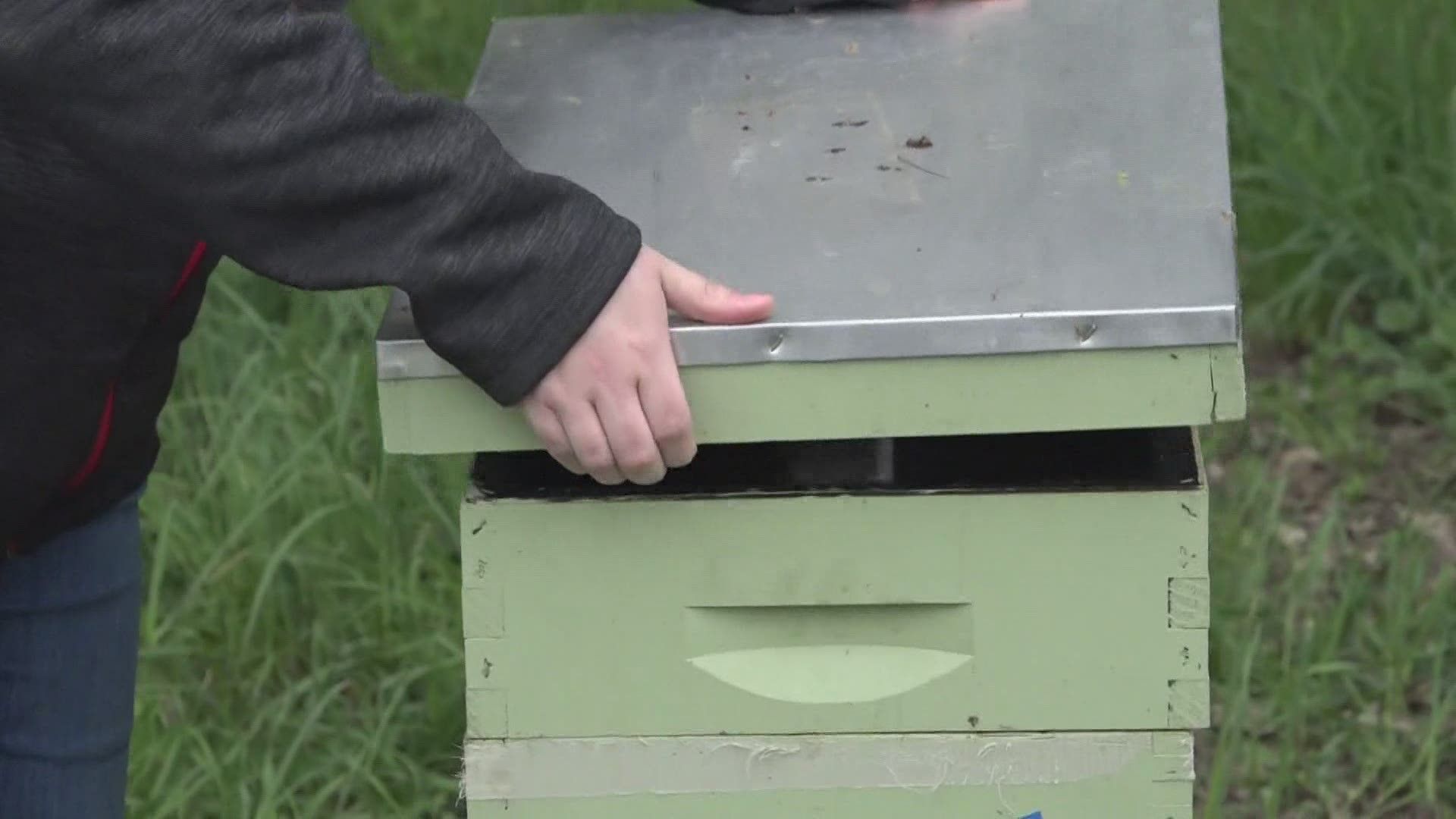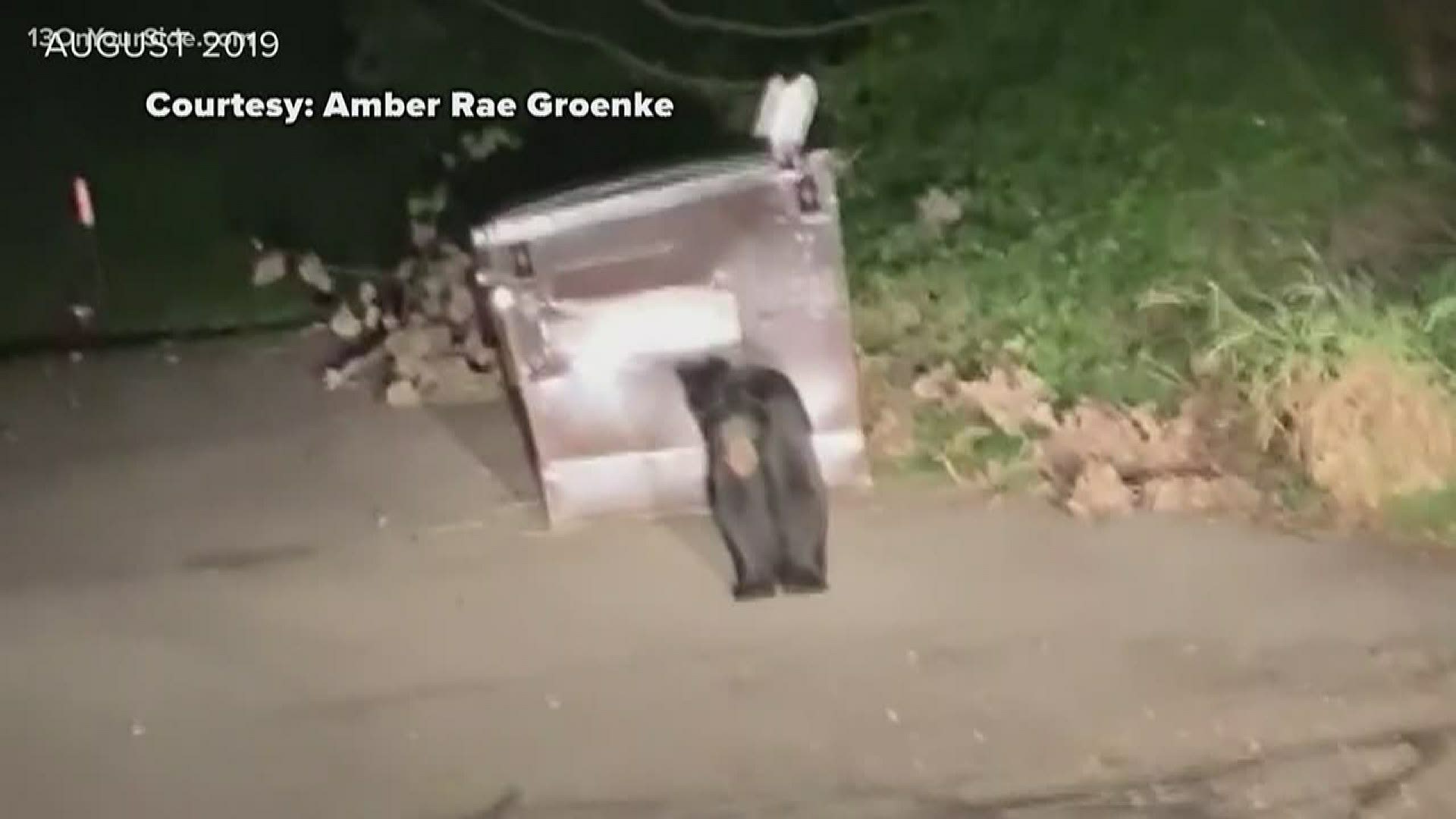COOPERSVILLE, Mich. — Keelyn VanderWeide is a hobby beekeeper. She cares for the bees, makes sure they survive winter, and harvests the honey to sell and bake with in the autumn.
She and her husband visited their friend's property in Coopersville, where they store their beehives, Sunday morning to check on their bees. When they arrived, the property owner said, "Hey, there's something wrong with your hives."
As they walked closer, VanderWeide saw her three hives thrown all over the ground, one upside down and many ripped apart.
"It was just demolished," said VanderWeide. "For those of you who haven’t seen a bear attack a bee yard, it almost looks like a tiny tornado attacks that one spot."
The way the hives were torn apart appeared to be a bear attack. Also, the black bear was spotted when they returned later that evening. Slowly, they put back together the hives. They were lucky, the apiary parts were salvageable, and the queen bees had not escaped.

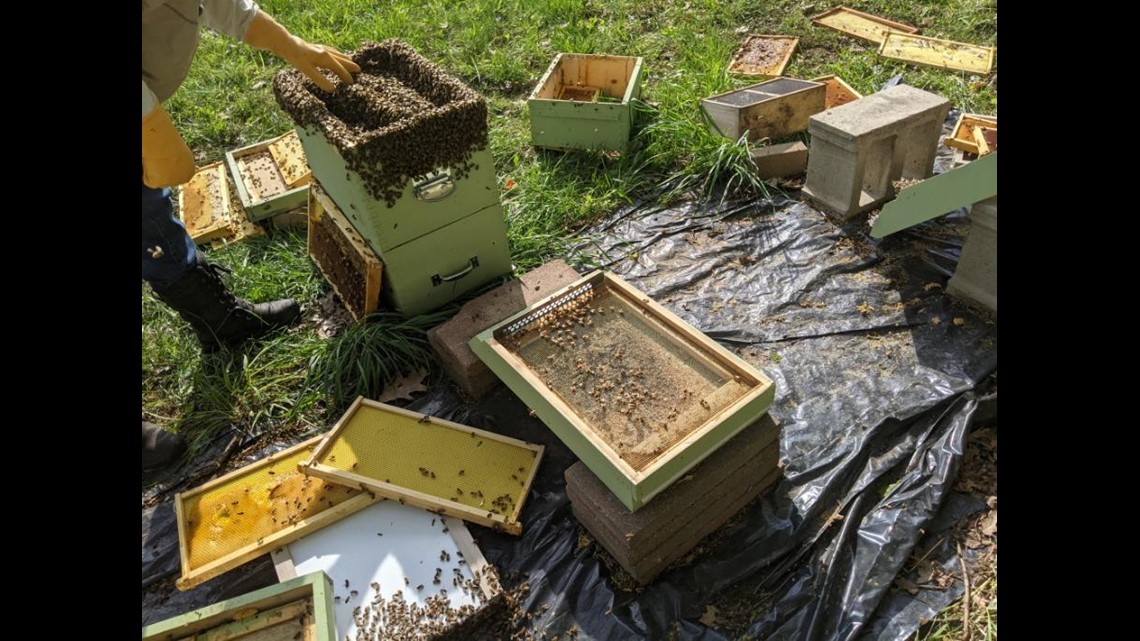
"We did find some of the honey frames had been dragged down the hill," said VanderWeide. "So we had to go down the hill here, into the gully, and pull out some of the frames that the bear had wandered off with."
She spoke to some of the neighbors who also had bees, and posted about the experience in an online beekeeping community page. She found out many others had the same experience this week in the area. Some even had pictures of the hungry bear in question.
"After rising from hibernation, they're looking for food and to replenish their very hungry bodies," said Rachel Leightner, the wildlife outreach coordinator with the Michigan DNR. "Black bears have an excellent sense of smell, and a really big appetite. So what is more enticing than a beehive?"
Leightner said bear sightings or beehive attacks like this are common this time of year, especially in northern Michigan. She said the best course of action when a bear is getting into things he shouldn't is preventative measures.

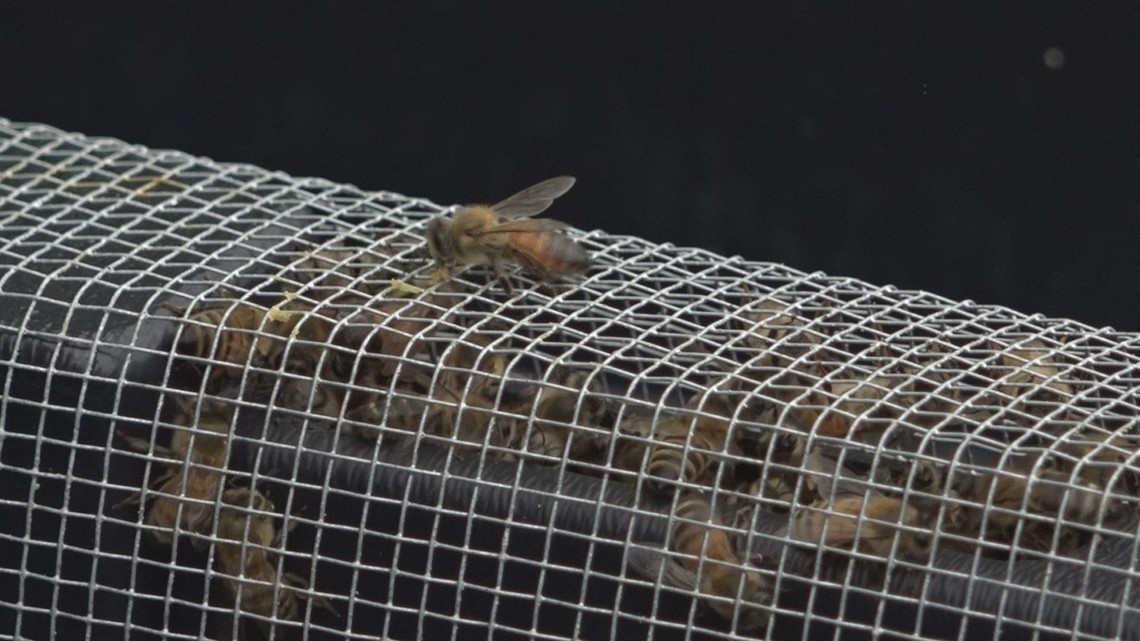
"We want bears to make sure they retain their fear of humans," said Leightner, "because if they do become habituated bears, if they lose their fear of humans, it won't be easily scared out of an area. Therefore, it can't be relocated to a new area. Because it's likely going to become a problem for people wherever it's moved to."
To prevent a bear attacking a beehive, chicken coop, bird feeder or anything else in a yard, Leightner said the best defense is an electric fence. Motion lights and noise makers are also useful.
The DNR's website has many tips for dealing with nuisance wildlife. Those resources can be found here.
Leightner gave some tips to avoid bears with an electric fence:
- Keep the hives away from a wooded, natural area. Place them where grass is mowed or fenced in.
- Make sure vegetation underneath the fence is clear, because it could reduce the electrical charge. This would make the fence not strong enough to stop a bear.
- Make sure the fence is plugged in and working.
- Beehives should be at least three feet away from the fence, or a bear could swing an arm, grab the hive, and pull it out.

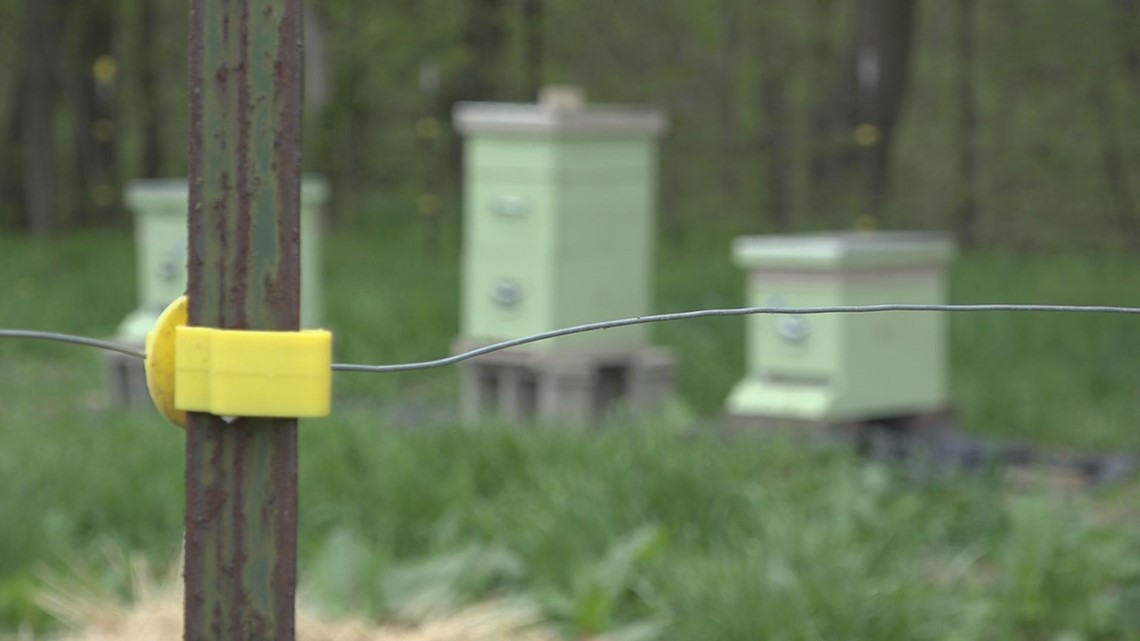
If the bear becomes a conflict, steps have been taken to prevent the bear coming onto property, and the bear appears to have lost its fear of humans, contact a local wildlife biologist immediately to discuss next steps.
VanderWeide has since moved her beehives behind an electric fence. She said in the three years she has been beekeeping, she has not had any issues with bears. This one attack will not stop her from enjoying her hobby.
"It’s one of those things that you know as a beekeeper might happen," said VanderWeide. "But when there aren’t bears in the area, you don’t typically think they’ll come through. It was a big surprise especially after three years. It’s a really, really cool hobby. It is expensive, so it is disheartening when a bear comes through and destroys all your stuff. But don’t be discouraged, because this is a fairly rare occurrence, especially in this area."
RELATED VIDEO: Bear dies after being hit by truck in Walker
►Make it easy to keep up to date with more stories like this. Download the 13 ON YOUR SIDE app now.
Have a news tip? Email news@13onyourside.com, visit our Facebook page or Twitter. Subscribe to our YouTube channel.

